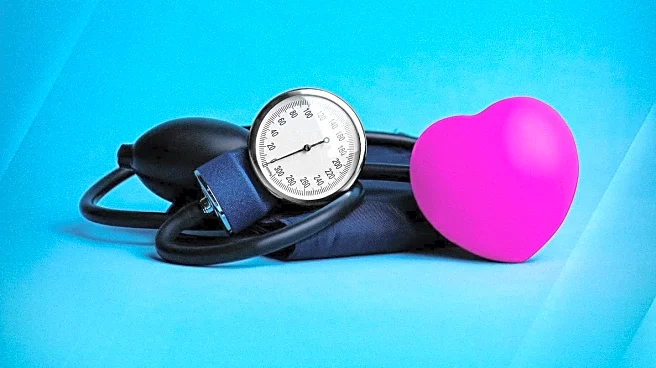What's Happening?
The Bax24 Phase III trial has demonstrated that baxdrostat, a drug developed by AstraZeneca, significantly reduces systolic blood pressure in patients with treatment-resistant hypertension. The trial showed
a placebo-adjusted reduction of 14.0 mmHg in 24-hour ambulatory systolic blood pressure at 12 weeks. Baxdrostat was well tolerated, with a safety profile consistent with previous trials. The drug's efficacy was observed throughout the 24-hour period, including early morning, when cardiovascular risk is highest. The trial results were presented at the American Heart Association Scientific Sessions 2025.
Why It's Important?
Hypertension affects approximately 1.4 billion people worldwide and is a major risk factor for cardiovascular diseases. The Bax24 trial results suggest that baxdrostat could transform treatment practices for patients with resistant hypertension, a condition that remains uncontrolled despite multiple medications. By achieving significant blood pressure reductions, baxdrostat has the potential to improve cardiovascular outcomes and reduce the risk of heart attacks and strokes, offering hope to millions of patients.
What's Next?
The positive results from the Bax24 trial will be shared with regulatory authorities globally, potentially leading to approval and wider use of baxdrostat in clinical settings. AstraZeneca plans to continue investigating baxdrostat's efficacy in combination with other treatments for conditions like chronic kidney disease and heart failure, aiming to expand its therapeutic applications.
Beyond the Headlines
Baxdrostat's mechanism of action, which involves inhibiting aldosterone synthase, highlights the importance of targeting specific hormonal pathways in managing hypertension. This approach could lead to more personalized and effective treatments, addressing the underlying causes of high blood pressure and improving patient outcomes.












